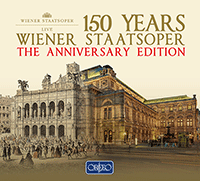Nicolai Ghiaurov
As a child Ghiaurov was extremely musical, learning to play the violin, clarinet and trombone while also studying drama, which was his initial career choice. While serving in the army however, in which he conducted and played the clarinet, he was heard singing by an officer, who recommended him to Hristo Brambarov, a singing teacher and prominent baritone in Sofia who had trained in Italy. Studying with Brambarov at the Bulgarian State Conservatory from 1949, Ghiaurov learnt not only the Russian style of singing but also the Italian, which was unusual for Slavic singers at that time. Later he credited his vocal longevity to never pushing his voice in these early years: during his first year of study he worked on only one octave, just doing vocal exercises.
After a year with Brambarov, Ghiaurov attended the Moscow Conservatory from 1950 to 1955, the year in which he won the Grand Prix at the International Vocal Competition in Paris and the First Prize and a gold medal at the Fifth World Youth Festival in Prague, and also made his operatic stage debut as Don Basilio / Il barbiere di Siviglia in Sofia. Two years later he sang Pimen / Boris Godunov at the Bolshoi Theatre, Moscow and Ramphis / Aida at the Vienna State Opera, while in 1958 he appeared as Méphistophélès in Gounod’s Faust in Bologna.
Ghiaurov’s international career was launched in 1959, when he sang Varlaam / Boris Godunov at La Scala, Milan. During 1962 he made his debut at the Royal Opera House, London as Padre Guardiano / La forza del destino, for which he won high praise; and made his first appearance at the Salzburg Festival, singing in Verdi’s Requiem under Karajan. He made his American debut during the following year with the Chicago Lyric Opera and first appeared at the Metropolitan Opera in 1965, on both occasions as Méphistophélès.
By this time Ghiaurov had established a secure position in the world of international opera, where he remained for much of the rest of his life. He appeared regularly at Covent Garden up to 1993 in roles that included Philip II / Don Carlo, Boris / Boris Godunov, Méphistophélès and Prince Gremin / Eugene Onegin. With the Lyric Opera of Chicago he sang twelve roles that included an incomparable interpretation of the title role of Massenet’s Don Quichotte, which he also recorded for Decca. He sang with the Metropolitan Opera until 1996, giving eighty-one performances of ten roles that included Fiesco / Simon Boccanegra, Banquo / Macbeth, Sparafucile / Rigoletto, Arkel / Pelléas et Mélisande and Don Basilio in the Rossini Barbiere, as well as many of the other major parts for which he was famous.
In Europe Ghiaurov was equally active, singing regularly at the Vienna State Opera from 1962, including a notable Khovansky / Khovanshchina in 1989. A frequent guest at the Salzburg Festival, he sang there the title roles of Boris Godunov and Don Giovanni (which he recorded with Klemperer), King Philip, Ramphis and Banquo, as well as Gorjančikov in Janáček’s From the House of the Dead under Abbado, a particularly powerful interpretation. At La Scala the range of his roles was considerable and extended to Zaccaria / Nabucco (1966),Creon / Medea (Cherubini), Silva / Ernani, Baldassare / La favorita, Marcel / Les Huguenots, the Grand Inquisitor / Don Carlo and, as late as 1997, Alvise / La Gioconda.
Ghiaurov first sang with the soprano Mirella Freni in 1961 in Genoa, as Méphistophélès to her Marguerite. They were married in 1978, lived in Modena, and frequently appeared together on-stage. The fortieth anniversary of Ghiaurov’s debut with the Vienna State Opera fell in 1997 and he celebrated the occasion with a reprise of his Rossini Don Basilio. His final stage appearance was as Don Basilio in January 2004.
The possessor of a rich and vibrant voice with a large range, used with great musicality and sensitivity, Ghiaurov had the power when on stage to create a strong sense of dramatic atmosphere with the minimum of effort. His dramatic impact was well described by Harold Schoenberg in the New York Times writing about his Met debut: ‘He has presence, the kind that Pinza and Chaliapin had, the kind that jumps over the footlights and seizes the listener in a palpable embrace.’
© Naxos Rights International Ltd. — David Patmore (A–Z of Singers, Naxos 8.558097-100).























